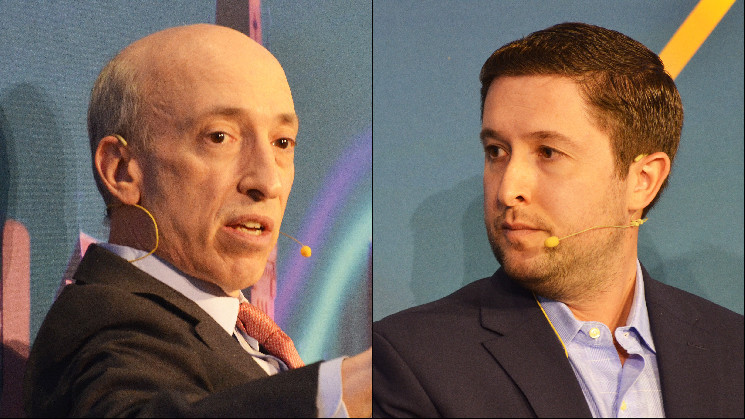Just hours after all wanna-be bitcoin ETF issuers finished revealing how much they’ll charge investors who own the products, some are cutting their planned fee – a sign of just how brutal the battle to accumulate assets will be if these products get approved this week.
But Grayscale, which already offers a bitcoin investment product the newcomers are chasing, is standing firm with its far-costlier fee – and the distance grew with Tuesday’s cuts.
For full coverage of bitcoin ETFs, click here.
Valkyrie cut its fee nearly in half to 0.49% from 0.8%, and it will charge nothing for three months. Even with the change, though, the crypto asset manager is at the higher end of the spectrum, closer to competitors like Fidelity (0.39%) and Invesco, which also lowered its fee by 20 basis points to 0.39%.
Bitwise, which was already the lowest-cost option at 0.24%, decided to go down even further, to 0.20%, widening its gap to competitors 21Shares and Ark and VanEck, who have so far stuck with their initial fees of 0.25%. WisdomTree went down 20 basis points, to 0.30%.
With the recent changes, nine applicants – the overwhelming majority – will potentially be charging investors less than 0.5% of the net asset value of the fund. Meanwhile, Grayscale is significantly higher at 1.5%. But experts say that they wouldn’t be surprised if the crypto asset manager makes some changes as time goes on.
“It’s trivial for them to drop the fee, but difficult to raise it after conversion,” former Davis Polk attorney and GP at Van Buren Capital, Scott Johnsson wrote on X. “Seems to me that if they’re trying to find the sweet spot of minimizing asset under management (AUM) declines and maintaining fees, it’s not so outrageous to start out at a “high” level and then adjust.”
Read more: In Bitcoin ETF Battle, Grayscale Is Bringing ‘a Gun to a Knife Fight’
The Grayscale Bitcoin Trust (GBTC), which the company wants to convert into an ETF, currently charges 2%, so 1.5% is a reduction. It may also justify its high price because it has a significant competitive advantage over others because of its size. The asset manager has more than $27 billion of AUM lined up even before potential approval and launch. The others are essentially starting at zero.
Read the full article here

